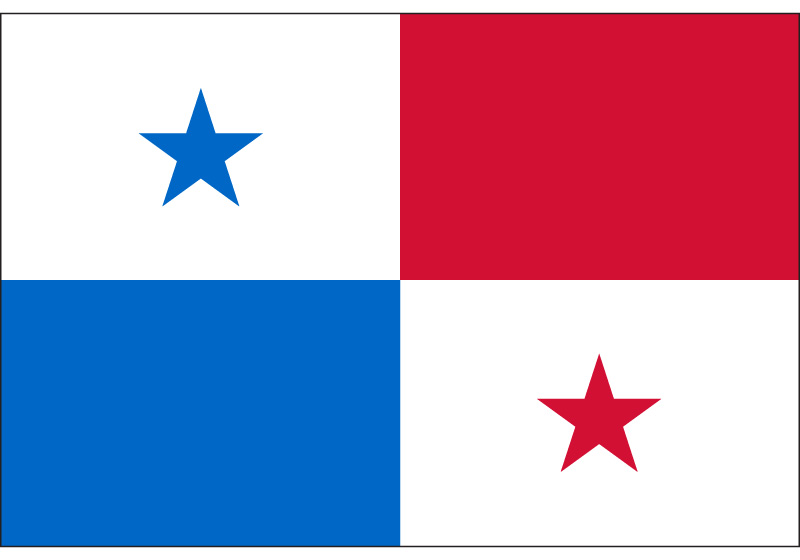Looking to set up a Forex business? Panama offers a tax-free income framework for international operations, low operational costs, and a stable political environment. Here's why Panama's Forex license is appealing:
- Tax Benefits: No taxes on income earned outside Panama.
- Low Costs: Initial investment starts at $35,500, with annual fees around $1,250.
- Flexibility: Operate globally in areas like currency trading and payment intermediary services; additional licenses or authorizations may be required for cryptocurrency or commodities such as precious metals.
- Restrictions: No securities trading, banking, or fiduciary services allowed.
Quick Facts:
- License Validity: Indefinite, provided the licensee maintains ongoing compliance with Panamanian regulatory requirements.
- Key Costs: Government registration fee of approximately $5,000 and legal fees starting at $5,000; annual compliance and audit costs may vary.
- Setup Time: Several months, depending on documentation accuracy
Want to apply? Prepare a business plan, meet the minimum $150,000 paid-up capital requirement as mandated by the SMV for Forex-related entities. Panama’s Forex license is ideal for businesses seeking a tax-efficient and globally connected financial base.
License Requirements
The Panama Financial Services Company license is overseen by the Superintendency of the Securities Market (Superintendencia del Mercado de Valores, SMV), which regulates Forex and financial intermediary activities in Panama. To apply, businesses need to provide proof of their financial stability and operational capacity. Leasing services require special authorization and a minimum capital of $150,000.
Here’s a breakdown of what’s allowed and what’s not under this license:
Panama Financial Rules
-
Permitted Activities
Companies holding this license can:- Open corporate bank accounts
- Act as payment intermediaries
- Handle currency and foreign exchange transactions
- Manage Bitcoin accounts
- Trade in precious metals
- Offer factoring services
- Provide leasing services (if granted special permission)
-
Restricted Activities
The license explicitly prohibits:- Securities trading
- Credit union operations
- Savings and loan services
- Fiduciary services
- Cash transmittal services
- Any form of banking services
This regulatory framework is particularly attractive to offshore financial service providers and international banks managing third-party funds.
Panama License Pros and Cons
Benefits vs Drawbacks
Panama's forex licensing system offers both advantages and challenges, which are summarized in the table below:
| Benefits | Drawbacks |
|---|---|
| No taxes on income from international operations | Annual license fee of $20,000 |
| Strong banking system | Registration fee of about $10,000 |
| Advanced telecommunications infrastructure | Ongoing compliance requirements |
| Politically stable environment | Limitations on certain banking services |
| Flexible regulatory environment |
Main Points
The service sector accounts for 75% of Panama's GDP, showcasing its strong foundation in financial services. Below are key aspects of Panama's licensing framework:
Strategic Advantages:
- Panama's location acts as a bridge between North and South America, making it a prime business hub.
- Modern telecommunications systems enable efficient global operations.
- Political stability provides a secure environment for long-term business activities.
- Limited government interference in daily business operations.
Financial Benefits:
- Income earned outside Panama is exempt from local taxes.
- Operating costs are lower compared to other markets.
- Businesses gain access to favorable banking opportunities.
Key Limitations:
- License holders must adhere to specific technical requirements to maintain operational integrity.
- They are required to meet ongoing regulatory compliance and reporting standards.
- Certain banking services are restricted for license holders.
Entities must comply with Law 23 of 2015, Panama’s primary AML/CFT framework, which governs due diligence, suspicious transaction reporting, and risk-based controls.
These points highlight the essential aspects to consider when applying for a forex license in Panama.
How to Apply
Paperwork Setup
To begin the process of obtaining a Panama Forex License, you'll need to gather and prepare detailed documentation. This includes a business plan that outlines your operational strategy, financial projections, AML (Anti-Money Laundering) and KYC (Know Your Customer) policies, risk management framework, workflows, and technology infrastructure.
You'll also need to establish a Panamanian corporation by:
- Choosing a unique company name
- Appointing directors
- Securing a registered office address within Panama
Once all documents are ready, the application moves into a thorough review process.
Application Review
The review process involves several stages:
- Initial Submission: Submit your complete application package to the Superintendency of Securities Market (SMV).
- Capital Verification: Provide proof that you meet the required minimum capital.
- Background Checks: Directors and key personnel will undergo background screening.
This review phase can take several weeks. During this time, the SMV may ask for additional information or clarification. Once the review is successfully completed, the application moves toward final approval.
Getting Approved
The final approval process includes these essential steps:
-
Compliance Verification
The SMV will evaluate critical aspects of your compliance framework, such as trading system security, customer data protection, financial reporting, and risk management protocols. -
License Issuance
After confirming compliance, the SMV will issue your forex license. -
Ongoing Obligations
After approval, you'll need to:- Establish a local office in Panama
- Hire compliance personnel
- Implement the approved trading systems
- Set up relationships with banking institutions
The entire process can take several months, depending on how complete and accurate your documentation is. Once issued, the license is valid for a fixed term. Keep in mind that staying compliant is crucial, as regular reviews and fee payments will be required to maintain the license.
sbb-itb-7fe6294
Fees and Time
Cost Breakdown
The costs involved depend on your business model and the specific regulatory requirements in Panama. Here are the main expenses to consider:
- Initial capital: The amount required to meet regulatory capital standards.
- Application and administrative fees: Charges for filing and processing your license application.
- Legal, registration, and local setup fees: Costs for setting up your business and meeting legal requirements.
- Compliance and audit expenses: Ongoing costs for maintaining compliance systems and conducting annual audits.
For the most accurate and up-to-date cost details, consult Panamanian regulatory bodies or seek advice from experienced legal and financial professionals.
Time Schedule
The time needed to obtain a license can vary based on how complete your documentation is and how efficiently the review process moves forward. The process typically includes three main stages:
- Pre-application: This involves setting up your company, preparing necessary documents, and verifying your capital.
- Application processing: During this phase, authorities will review your application, conduct compliance checks, and perform background investigations.
- Post-approval: Once approved, you'll need to establish physical operations, integrate necessary systems, and hire staff.
Staying in regular contact with the regulatory authority can help reduce delays and keep the process on track.
Summary
A Panama Forex License provides a practical option for setting up financial operations in a jurisdiction with favorable conditions. However, success requires strict adherence to regulations and careful preparation of all necessary documentation.
Key Advantages
- Simplified reporting standards compared to Tier 1 jurisdictions, but regular audits and financial disclosures are still required
- Reduced operational expenses
- Flexible ownership structures
- Streamlined due diligence process
Steps to Ensure Success
-
Expert Legal Support
Work with experienced legal professionals to navigate the application process. This helps ensure compliance with both local and international regulations, reducing the risk of application denial. -
Complete Documentation
Prepare all required documents accurately, including:- Background records
- Proof of meeting capital requirements
- Details of corporate structure
- Compliance system records
-
Ongoing Compliance
To maintain your license, focus on:- Regularly monitoring regulations
- Keeping documentation up-to-date
- Following ethical business practices
- Seeking legal and tax advice when needed
By addressing these factors, you can simplify the licensing process and maintain operational credibility.
Panama’s regulatory framework and business-friendly environment make it a strong contender for Forex businesses aiming for long-term growth.



















